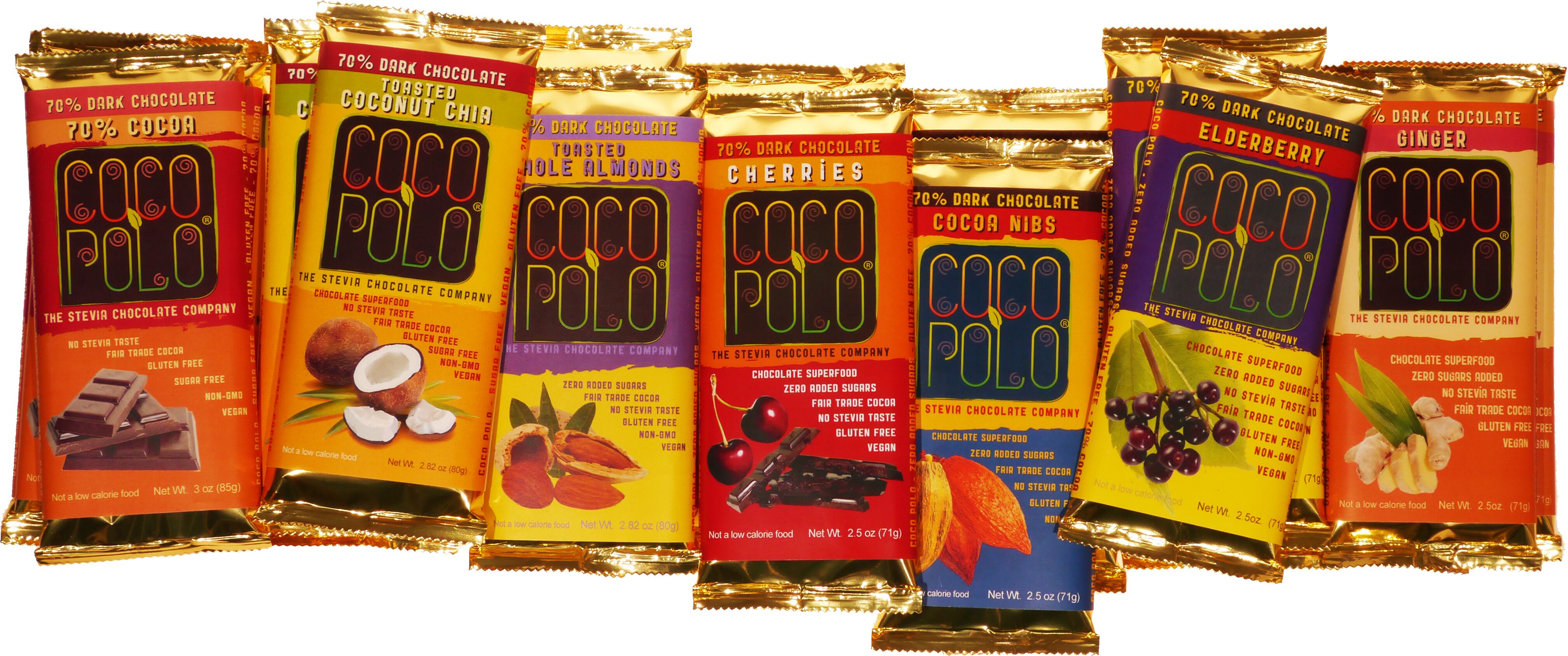The New Jersey-based company has created 13 chocolate bars without added sugar, including exotic fruit and nut varieties.
Mainstream retail
It has listings in regional Whole Foods outlets and in Fresh Market and Sprout’s Farmers Market.
“The category we are targeting at the moment is the natural and speciality market – they have a greater acceptance of our products,” John Cunnell, owner and founder of Coco Polo told ConfectioneryNews. “Our next thrust will be the mainstream grocery stores.”
‘It was dreadful stuff’
But Cunnell said that mass penetration of mainstream retail could take some time.
“It could be 10-15 years before stevia-sweetened chocolate is in everyday retail. It won’t be until companies like us have lots of distribution and consumers drive it forward.”
He said consumers and retailers were still skeptical about sugar free chocolate after a long legacy maltitol sweetened products.
“It had been fairly negative because it was dreadful stuff. Sugar free chocolate up to 2010 all had sugar polyols and you could end up with gastric stress by eating too much.” But he said that stevia, unlike maltitol, produced no laxative effect.
Big players put off
He said that the negative press of sugar free chocolate had perhaps put major manufacturers off producing stevia chocolate for good.
“I don’t see any reason that would change unless there was a change from government to reduce sugar intakes.”
Sugar’s obesity link

Coco Polo was founded in 2009, but only began selling in the US from 2011.
“The firm was set up to manufacture and sell stevia sweetened chocolate because it does not raise blood sugar,” said Cunnell.
“The amount of sugar consumed on a daily basis is four or five times above what people should be eating and it is leading to health problem like obesity.”
Recent research in the British Medical Journal (BMJ) and the Journal of Dental Research has linked added sugars to increased BMI (body mass index) and high incidences of dental caries.
The World Health Organization consequently said that it would have extra benefits if sugar accounted for 5% of total calorie intake a day, but it maintained its recommended level at 10%.
Sugar in chocolate
Cunnell said that sugar levels in chocolate had been on the rise over the last century as manufacturers grew volumes and sought the cheapest ingredients. He said there was extra incentive to add more sugar now as cocoa prices rose.
However, he conceded that chocolate made up a small proportion of American’s sugar intake. National Confectioners Association (NCA) funded research found that the average US consumer ate candy around three times a week, which equates to 2% of their daily caloric intake or about 50 calories a day.
“But it’s more a notion of habit and perspective – sugar is in an awful lot of products,” said Cunnell.

Formulation
Cunnell began working on a stevia chocolate formulation in 2001 in collaboration with a farmer producing stevia in Hawaii. Coco Polo uses Rebaudioside A bulking sweeteners inulin and erythritol.
“We have created a chocolate that doesn’t have a bitter taste. We don’t use masking agents,” said Cunnell.
Coco Polo’s 100 g bars cost around $5, while the average premium sugar chocolate tablet costs $5.
The price accounts for the added cost of stevia and bulking sweeteners over sugar.
Stevia costs around $100 per pound, but because it is much sweeter, manufacturers require less than sugar. However, stevia only acts as a sweetener and bulking agents are required.
